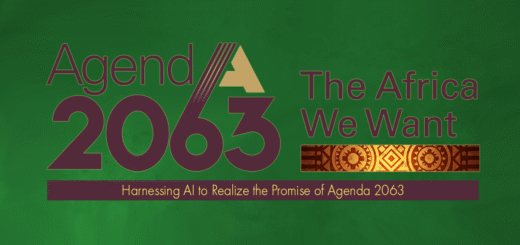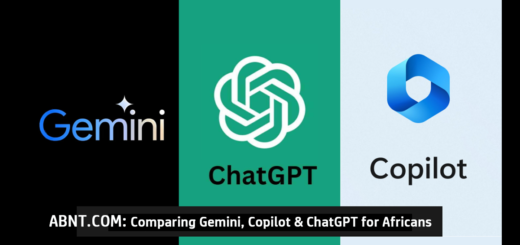From Bard to Gemini: Google’s AI Gambit and What it Means for Africa?
The world of Artificial Intelligence is constantly evolving, and Google has just made a major shift. Bard, its conversational AI known for crafting witty poems and answering questions, has taken a backseat to the mighty Gemini. This new and improved model promises not just advanced text interaction, but the ability to generate code, understand complex nuances, and even collaborate on creative projects. But as this AI revolution unfolds, a crucial question arises: what does it mean for Africa?
This vast continent, teeming with potential and facing unique challenges, stands to be significantly impacted by advancements in AI. Will Gemini be a game-changer, unlocking doors for African developers, entrepreneurs, and artists? Or will the digital divide and ethical concerns leave many behind?
Let’s embark on a journey through the Gemini galaxy and explore its implications for the African landscape. We’ll examine the exciting possibilities, tackle the hurdles of accessibility and language barriers, and ponder the critical issue of responsible AI development. Buckle up, as we navigate the exciting, yet complex, intersection of AI and Africa’s future.
By adding this introduction, I hope to provide a broader context and grab the reader’s attention right away. Feel free to further customize it to fit your specific style and voice!
The Power Play: From Text to Code, Africa in the Spotlight
Gemini boasts a significant upgrade, expanding beyond mere text interaction. Think generating code, understanding nuances, and even collaborating on creative endeavors. This opens doors for African developers, entrepreneurs, and artists in exciting ways. Imagine an AI co-writer crafting captivating stories inspired by African folklore, or a programmer receiving real-time coding assistance from Gemini. The possibilities are truly tantalizing.
Language Barrier Breakthrough? Not Quite There Yet
While Gemini currently speaks over 40 languages, including the recent addition of Swahili, English remains the dominant force. This presents a significant hurdle for wider African adoption. The lack of support for local languages could exclude many from experiencing Gemini’s potential, potentially exacerbating existing inequalities. Google must prioritize bridging this gap to ensure inclusivity and empower diverse African voices.
The Price Tag: Access or Exclusion?
Gemini Advanced, the premium version, unlocks the full potential of this AI marvel. But at $14 per month, it might prove inaccessible for many Africans. Google needs to consider tiered pricing or local partnerships to make this advanced AI more affordable, fostering innovation across the continent and ensuring everyone has a chance to participate in this technological leap.
Beyond Hype: Ethical AI for Africa’s Future
As AI like Gemini takes root, ethical considerations become crucial. Biases present in training data can perpetuate inequalities and marginalize certain communities. Google must be transparent about its data sources and actively combat bias, ensuring responsible AI development that benefits all of Africa.
The Verdict: A Promising Start, But Work in Progress
Gemini’s arrival presents a promising opportunity for Africa’s tech ecosystem. However, language barriers, accessibility, and ethical considerations remain hurdles that need to be addressed. Google must prioritize inclusivity, affordability, and responsible development to ensure this AI revolution empowers, not excludes, the African continent. The journey has just begun, and how Google navigates these challenges will determine if Gemini truly unlocks Africa’s potential and contributes to a more equitable and prosperous future.
Related posts: Unlocking Africa’s Potential with AI: A One-Stop Shop for Learning and Innovation; Leapfrogging the Future: How AI can Transform Africa
External sources: Google Gemini: Everything you need to know about the new generative AI platform: https://techcrunch.com/2023/12/06/googles-gemini-isnt-the-generative-ai-model-we-expected/




[…] post: Leapfrogging the Future: How AI can Transform Africa | AI Capacity Building in Africa | Unlocking Africa’s Potential…
[…] ABNT. (2024). The Impact of Artificial Intelligence on African Economies. Retrieved from https://abnt.com/?p=37 […]
[…] Related posts: Bridging the digital divide for inclusive & sustainable developmentReflection on the Digital Transformation Strategy for Africa (2020-2030)…
[…] posts: Bridging the digital divide for inclusive & sustainable developmentReflection on the Digital Transformation Strategy for Africa […]
[…] Related posts: Reflection on the Digital Transformation Strategy for Africa (2020-2030) […]